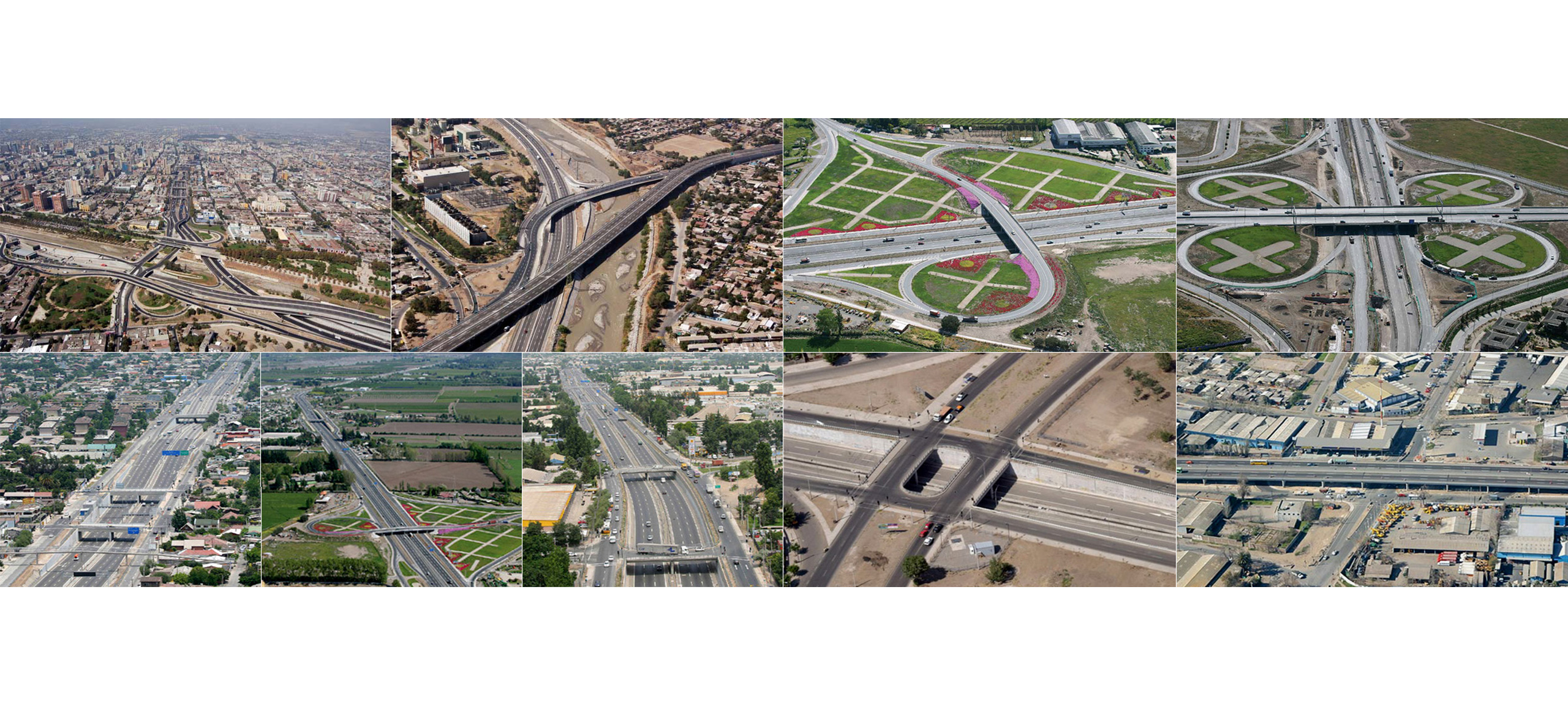
| Central Motorway | |
| Santiago, Chile | |
| Typologie | Road & Highway Bridges |
| Date | Janvier, 2006 |
| Mission | Detailed design |
| Constructeur | Dragados – Skanska - Belfi – Brotec. |
| Maîtrise d'ouvrage | Ministerio de Obras Públicas. República de Chile |
Santiago de Chile"s Central highway is made up of two major axes that cross the capital from north to south and cross the Mapocho River on two occasions. The north-south axis runs between the aforementioned river and Av. Américo Vespucio Norte at a length of 40 km. The General Velásquez axis has a length of 20 km. Once this highway is completed, it will be the third in the world and the first in South America (along with other concessions in the Metropolitan Region) to implement the Free Flow Toll, which allows the transit of vehicles without stopping.
The project includes the implementation of numerous structures in urban and peri-urban areas, densely populated and with a significant traffic load, as well as a large number of interventions on existing structures, so it is essential to maintain the passage of vehicles - although restricted - during the construction process. The project structures comprise 5 bridges, 32 overpasses, 35 underpasses, 34 walkways, 3.7 km of cut-and-cover tunnel and 24 km of walls.
The typologies used in the bridges, overpasses and underpasses respond to different conditions, both geometric and constructive. For this reason, prestressed slabs with post-tensioning reinforcement, reinforced slabs, mixed structures and structures with prefabricated reinforced and prestressed beams have been designed.
The project includes the implementation of numerous structures in urban and peri-urban areas, densely populated and with a significant traffic load, as well as a large number of interventions on existing structures, so it is essential to maintain the passage of vehicles - although restricted - during the construction process. The project structures comprise 5 bridges, 32 overpasses, 35 underpasses, 34 walkways, 3.7 km of cut-and-cover tunnel and 24 km of walls.
The typologies used in the bridges, overpasses and underpasses respond to different conditions, both geometric and constructive. For this reason, prestressed slabs with post-tensioning reinforcement, reinforced slabs, mixed structures and structures with prefabricated reinforced and prestressed beams have been designed.





